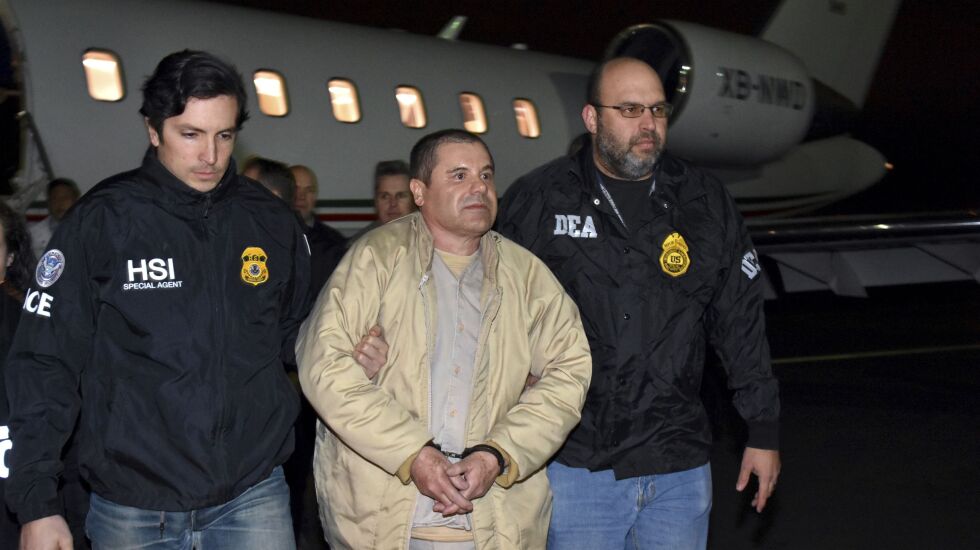He was one of the highest-ranking members of Sinaloa cartel kingpin Joaquin “El Chapo” Guzman’s inner circle to be sentenced in Chicago.
Now Alfredo Vasquez-Hernandez, 68, is hoping for a break on his 22-year prison term handed down in 2014.
In a detailed 13-page letter to U.S. District Judge Sharon Johnson Coleman, Vasquez-Hernandez says he qualifies for early release under the First Step Act that President Donald Trump signed in 2018. He cites health problems and changes in drug sentencing laws.
Vasquez-Hernandez has spent 13 years in federal custody. With the “good time” he’s earned in prison because of a clean record and the classes he’s taken, Vasquez-Hernandez says he expects to be released two years from now.
But he says conditions at the Fort Dix, New Jersey federal correctional center — where he’s being held — are atrocious. And he says he shouldn’t have been sentenced as a “manager or supervisor,” which would have reduced his prison term.
Vasquez-Hernandez, who’s representing himself legally, is asking the judge to change his sentence to “time served.”

His lifelong friend, El Chapo, is serving a life sentence in a federal prison in Colorado. Meantime, four of El Chapo’s sons were charged in federal court in Chicago last year with continuing their father’s multibillion-dollar drug enterprise. One of them, Ovidio Guzman Lopez, was extradited from Mexico to Chicago.
Margarito and Pedro Flores, who grew up in Little Village and were some of El Chapo’s biggest cocaine customers, cooperated with the government against El Chapo and Vasquez-Hernandez. The twin brothers got lenient 14-year sentences in exchange for their testimony.
Margarito Flores told a grand jury in 2009, “On behalf of Chapo . . . Alfredo organized the transportation of cocaine from Colombia to Mexico in airplanes; was involved in the transportation of cocaine from Colombia to Mexico in submarines and ‘submergibles’ or semi-submersible vessels . . . and facilitated the transportation of cocaine in rail cars.”
Prosecutors accused Vasquez-Hernandez of being the cartel’s logistics coordinator, responsible for multi-ton shipments of cocaine into the United States. He pleaded guilty in 2014 to one count of conspiracy to distribute narcotics involving a single 276-kilogram shipment of cocaine from Mexico to Chicago by train.
His attorney said the Flores twins exaggerated his role in the cartel. Even Ruben Castillo, the judge at the time, said he was puzzled the feds were unable to show that Vasquez-Hernandez, who portrayed himself as a body shop worker, got rich from his association with El Chapo.

“He has no assets — it’s like he’s Mr. X. I’d like to know who it is that I’m sentencing,” Castillo said, adding that Vasquez-Hernandez may have concealed a “small fortune.”
In his Dec. 26 letter to the court, Vasquez-Hernandez says “no one is frozen in time” and that he’s been rehabilitated in prison. “The defendant is a man who recognizes that the life path which led him to break the law [was] stupid, unnecessary and wrong,” he writes, noting that he’s never been cited for an infraction in prison.
He says that even though he’s not a fluent English speaker, he’s now preparing to take a test for a general equivalency degree because he lacks a high school diploma. Some of the classes he’s taken in prison include accounting, parenting and painting — and some vocational courses.
Federal prosecutors have been given until Feb. 1 to respond to Vasquez-Hernandez’s letter.







